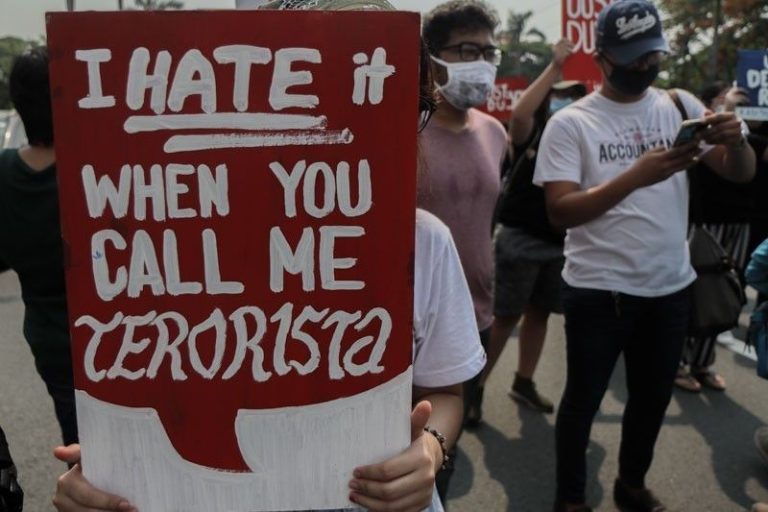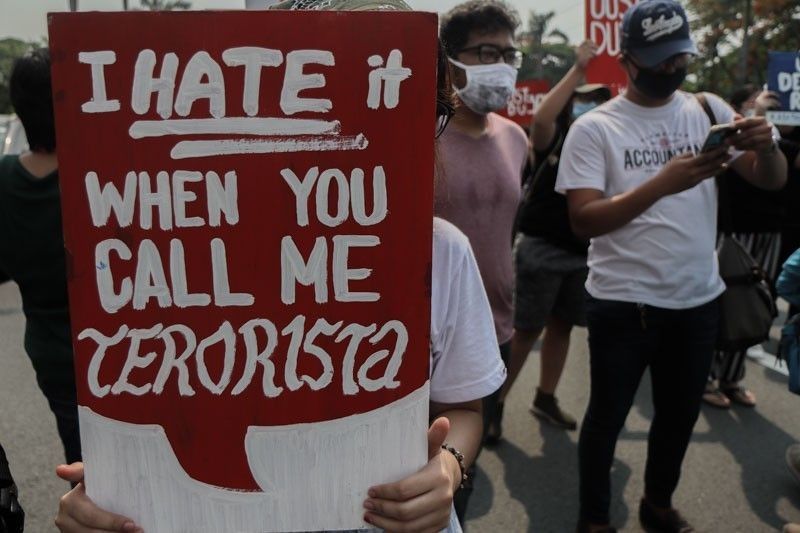
Xave Gregorio – Philstar.com, November 5, 2022

MANILA, Philippines — The UN Human Rights Committee is asking the Philippines to amend portions of the controversial Anti-Terrorism Act to comply with an international treaty on civil and political rights.
In a recent 13-page unedited report, the panel of human rights experts said the country should review and amend the law “with a view to bringing it into full compliance with the covenant and the principles of legal certainty, predictability and proportionality.”
The covenant being referred to is the International Covenant on Civil and Political Rights, to which the Philippines is a party.
“In doing so, it should ensure participatory consultations process with relevant stakeholders, including the Commission on Human Rights and civil society organizations,” the body said.
In particular, the panel said the Philippines should amend Sections 25 and 29 of the Anti-Terrorism Act which respectively provide grounds for the designation of people or groups as terrorists and allow for warrantless detentions.
The Anti-Terrorism Act, which is also sometimes called the anti-terror law, had passed the scrutiny of the Supreme Court which kept most of its provisions intact, save for parts of Section 4 and a method of designation provided for under Section 25.
The SC in a 12-3 vote nullified a proviso on protests and other mass actions that cannot be considered terrorism “for being overbroad and violative of freedom of expression.”
In a separate 9-6 vote, the SC struck down a provision that allowed the Anti-Terrorism Council to adopt requests for designation by other jurisdictions or supranational jurisdictions for being unconstitutional.
Still, the UN body flagged certain provisions of the law which the SC kept. Among these are the “overbroad and vague definitions of terrorism,” warrantless arrests and detention for up to 24 days without charge, and the “excessive powers” granted to the Anti-Terrorism Council for surveillance and gathering of personal data.
It also said it is concerned over the use of the law to “legitimize the targeting of government critics, human rights defenders and journalists, including through ‘red-tagging,’ and consequent chilling effects on freedoms of expression, peaceful assembly and association.”
The body also expressed concern with the threats and attacks against members of the judiciary, lawyers, human rights defenders and journalists.
The UN Human Rights Committee also urged the Philippines to cooperate in the investigation that may be conducted by the International Criminal Court on the alleged crimes against humanity committed during the course of the previous administration’s “war on drugs.”
In its 13-page advanced unedited report, the UN body composed of human rights experts said the Philippines should “strengthen its cooperation with the international human rights mechanisms as well as the ongoing investigation by the International Criminal Court.”
The panel noted that the Philippines continues to refuse to cooperate with international human rights mechanisms and the ICC probe, which has been suspended since last year at Manila’s request.
ICC prosecutor Karim Khan has since pushed for the resumption of the investigation as he argued that the Philippine government has failed to demonstrate that it has sufficiently investigated killings in police operations.
The Philippines, however, has asked the ICC’s pre-trial chamber to reject Khan’s request as it argued that the court lacked jurisdiction and that the alleged crimes committed were not grave enough to warrant its attention. Khan maintained that “none of those arguments have merit.”
Manila’s officials have also insisted that the complaints filed before the ICC are already being investigated by local agencies, which they said meant that the country “is neither unwilling nor unable to carry out these domestic proceedings.”
But the UN human rights panel is not convinced either, with it raising concerns over reports that authorities continued to fail to promptly, effectively and independently investigate extrajudicial killings and to bring the perpetrators to justice.
It also expressed concern over reports of “incitement to violence against and extrajudicial killings of suspected drug offenders by high-level officials, including the former president,” referring to Rodrigo Duterte.
Among the recommendations made by the UN committee is for the Philippines to “redouble its efforts to promptly, independently and thoroughly investigate all allegations of extrajudicial killings, bring perpetrators, including law enforcement officials, to justice.”
It also recommended that high-level Philippine officials refrain from inciting violence and extrajudicial killings.